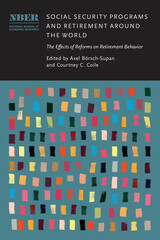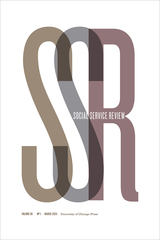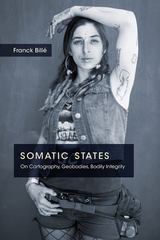9 start with I start with I
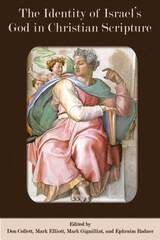
A broad, sweeping volume that breaches the walls separating biblical and theological disciplines
Biblical scholars and theologians engage an important question: Who is Israel’s God for Christian readers of the Old Testament? For Christians, Scripture is the Old and New Testament bound together in a single legacy. Contributors approach the question from multiple disciplinary vantage points. Essays on both Testaments focus on figural exegesis, critical exegesis, and the value of diachronic understandings of the Old Testament’s compositional history for the sake of a richer synchronic reading. This collection is offered in celebration of the life and work of Christopher R. Seitz. His rich and wide-ranging scholarly efforts have provided scholars and students alike a treasure trove of resources related to this critical question.

Dayna Patterson has produced a book obsessed with motherhood and daughterhood, ancestry, and transition—of home, family, faith, and the narratives woven to uphold the Self. In her debut collection of poetry and lyric essay, Patterson grapples with a patriarchal and polygamous heritage. After learning about her mother’s bisexuality, Patterson befriends doubt while simultaneously feeling the urge to unearth a feminist theology, one that envisions God the Mother taking pride in her place at the banquet table.
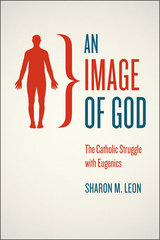
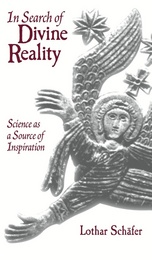
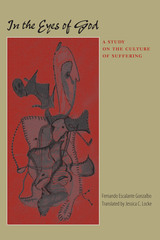
"Every culture needs to appropriate the universal truth of human suffering," says Fernando Escalante, ". . . to give its own meaning to this suffering, so that human existence is bearable." Originally published in Spanish as La mirada de Dios: Estudios sobre la cultura del sufrimiento, this book is a remarkable study of the evolution of the culture of suffering and the different elements that constitute it, beginning with a reading of Rousseau and ending with the appearance of the Shoah in the Western consciousness—"The memory endures, and this constitutes a fundamental transition for the Western conscience: we have witnessed."
Drawing on writings from the Greeks to Cervantes, Voltaire to Nietzsche, and Freud to William James, Escalante combines his considerable knowledge of politics and political theory with a vast array of literary examples to arrive at an intellectual understanding of the history and meaning of suffering. His investigation encompasses the rise of popular politics, the role of messianism in modern nationalism, and the contemporary implications of the Shoah.
This book will appeal to a wide audience: students of political theory, humanism, and philosophy, as well as the general reader interested in a glimpse into the mind of a highly original Latin American thinker.
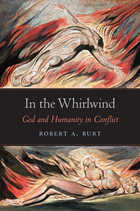
God deserves obedience simply because he’s God—or does he? Inspired by a passion for biblical as well as constitutional scholarship, in this bold exploration Yale Law Professor Robert A. Burt conceptualizes the political theory of the Hebrew and Christian Bibles. God’s authority as expressed in these accounts is not a given. It is no less inherently problematic and in need of justification than the legitimacy of secular government.
In recounting the rich narratives of key biblical figures—from Adam and Eve to Noah, Cain, Abraham, Moses, Job, and Jesus—In the Whirlwind paints a surprising picture of the ambivalent, mutually dependent relationship between God and his peoples. Taking the Hebrew and Christian Bibles as a unified whole, Burt traces God’s relationship with humanity as it evolves from complete harmony at the outset to continual struggle. In almost every case, God insists on unconditional obedience, while humanity withholds submission and holds God accountable for his promises.
Contemporary political theory aims for perfect justice. The Bible, Burt shows, does not make this assumption. Justice in the biblical account is an imperfect process grounded in human—and divine—limitation. Burt suggests that we consider the lessons of this tension as we try to negotiate the power struggles within secular governments, and also the conflicts roiling our public and private lives.
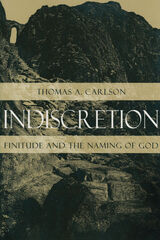
Combining both historical research in theology (from Pseudo-Dionysius to Aquinas to Eckhart) and contemporary philosophical analysis (from Hegel and Nietzsche to Heidegger, Derrida, and Marion), Indiscretion will interest philosophers, theologians, and other scholars concerned with the possibilities and limits of language surrounding both God and human subjectivity.
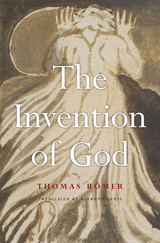
Who invented God? When, why, and where? Thomas Römer seeks to answer these questions about the deity of the great monotheisms—Yhwh, God, or Allah—by tracing Israelite beliefs and their context from the Bronze Age to the end of the Old Testament period in the third century BCE.
That we can address such enigmatic questions at all may come as a surprise. But as Römer makes clear, a wealth of evidence allows us to piece together a reliable account of the origins and evolution of the god of Israel. Römer draws on a long tradition of historical, philological, and exegetical work and on recent discoveries in archaeology and epigraphy to locate the origins of Yhwh in the early Iron Age, when he emerged somewhere in Edom or in the northwest of the Arabian peninsula as a god of the wilderness and of storms and war. He became the sole god of Israel and Jerusalem in fits and starts as other gods, including the mother goddess Asherah, were gradually sidelined. But it was not until a major catastrophe—the destruction of Jerusalem and Judah—that Israelites came to worship Yhwh as the one god of all, creator of heaven and earth, who nevertheless proclaimed a special relationship with Judaism.
A masterpiece of detective work and exposition by one of the world’s leading experts on the Hebrew Bible, The Invention of God casts a clear light on profoundly important questions that are too rarely asked, let alone answered.
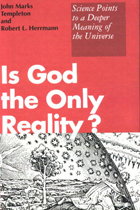
READERS
Browse our collection.
PUBLISHERS
See BiblioVault's publisher services.
STUDENT SERVICES
Files for college accessibility offices.
UChicago Accessibility Resources
home | accessibility | search | about | contact us
BiblioVault ® 2001 - 2025
The University of Chicago Press




